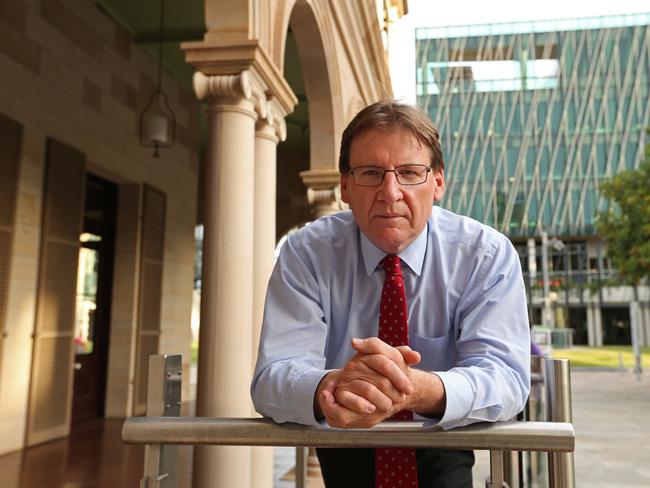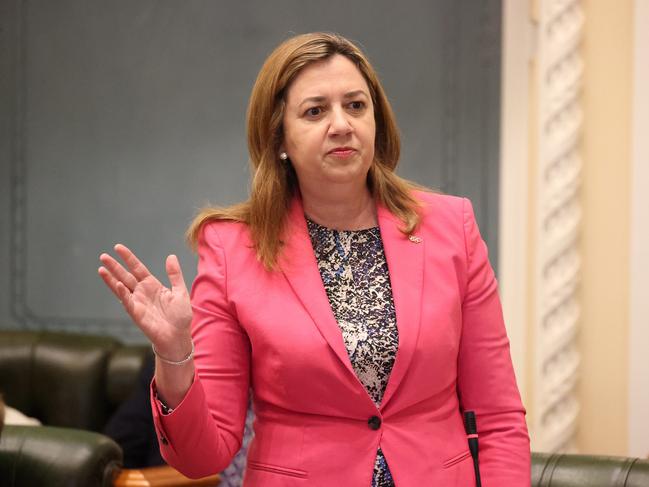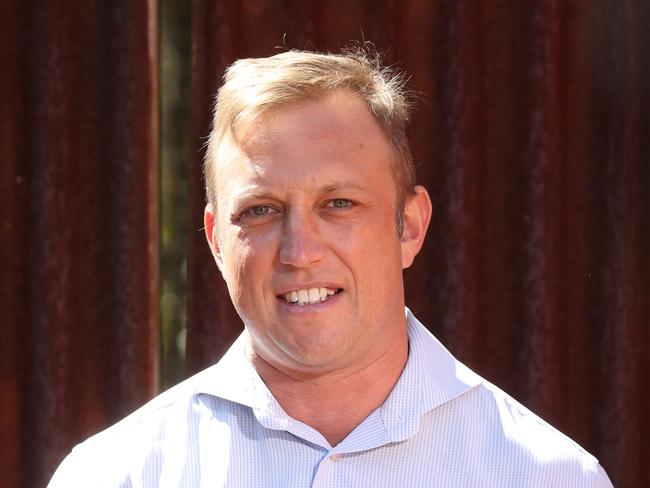Queensland Government integrity bombshell: Damning review exposes broken relationships
Biased staffers with no life experience are wielding their minister’s powers over a compliant public service who are working to protect and pacify the Palaszczuk Government, a damning series of bombshell “observations” has revealed.
QLD Politics
Don't miss out on the headlines from QLD Politics. Followed categories will be added to My News.
Biased staffers with no life experience are wielding their minister’s powers over a compliant public service who are working to protect and pacify the Palaszczuk Government.
Professor Peter Coaldrake has delivered a series of bombshell “observations” in his interim review of the culture and accountability of Queensland’s public service – the most scathing of which referred to how ministerial staff are operating in the halls of power.
The 26-page report reveals what integrity heads, public servants and those who deal with the government really think following 60 interviews and 200 submissions to the review, called in response to coverage by The Courier-Mail highlighting complaints by independent bodies of political interference and questionable ethics.
Prof Coaldrake found a “frequent concern” raised was that of “the perceived overreach of ministerial staff” during “an erosion of the important division between the protective instincts of staffers and public servants’ obligations of impartiality”.
Another frequent overreach was “when ministerial officers appropriate the authority of their Ministers in directing public servants to undertake certain tasks”.
But while it would be easy to assume attempt by public servants to protect a minster were due to direct pressure from staffers or the minister, this was not always the case, Prof Coaldrake found.

“Rather, it appears that in many instances it can be senior public servants who take it upon themselves to anticipate what the Minister wishes to be told or to assume that the Minister would want to be ‘protected’ from exposure to an inconvenient matter,” he wrote.
“The effect is to have a public service whose motivation are partly informed by a self-imposed obligation to ‘protect’ the Minister, which is at variance with its proper practice.”
He said the review had been made aware of senior public servants directing other public servants about how information should be channelled to their minister, including directing employees to “sanitise advice and alter recommendations to align with what was presumed to be the Minister’s position”.
“Another example included a Director-General taking steps to prevent a report from ‘reaching the Minister’s ears’ so as to ensure that the Minister could continue to plausible deny knowledge of the matter,” it said.
Prof Coaldrake found that despite there being a code of conduct for ministerial staff members, awareness and observation of this was “uneven”.
He wrote that if a pattern of “compliant, or worse, fear-based behaviour becomes entrenched” it put an organisation at risk.

“In the case of a government, it reduces the range of views available in decision-making, excludes the opportunity to truly engage the community being served, and can leave that government with a false sense of the quality of its own performance,” he wrote.
“While we acknowledge that this problem is not restricted to Queensland, the addressing of it is essential to rebuilding of both trust and confidence in the public sector here.”
Prof Coaldrake said he would now consider whether any steps were needed to ensure the ministerial staffers’ code of conduct “has teeth and is observed” ahead of his final report, due in two months.
“There is also the issue, inherent across jurisdictions, that significant numbers of ministerial staffers are enthusiastic young loyalists who have little other life experience aside from a university Labor or Liberal club or trade union office,” Prof Coaldrake wrote.
He suggested “youthful vigour” be “guided by experienced supervision”.
Prof Coaldrake also hit out at how lobbyists were operating, highlighting the “declining confidence” in government’s making good decisions, rather than those influenced by those with the most effective voice.
That was “accentuated by the dual roles of some lobbyists” who act for clients and then work for political parties “to help them win election”, he wrote.
The swipe follows revelations that powerful lobbyists Evan Moorhead and Cameron Milner worked on Labor’s 2020 election campaign.
Prof Coaldrake said there was a perception that the way to obtain government access and contracts was to “engage the services of one or two particular lobbying firms” who did the majority of work.

He raised issues with how many people were operating as lobbyists but were not captured by lobbyist regulations and therefore could circumvent provisions while earning success fees.
And he suggested official lobbyists were taking part in an “artistic obscuring” of the purpose of meetings by using vague terms like “introduction”, “commercial-in-confidence” and “other” to describe meetings on the official registers.
It was therefore clear “the lobbyist register is not doing the job which was intended”.
The final review will also consider whether the state’s Ombudsman should have oversight of both non-government organisations and external contractors undertaking work for the government.
Acting Premier Steven Miles said the interim report was an important step forward and that the government encouraged people to engage in the review in a frank and fearless manner.
“As the Premier has made clear on several occasions, she expects a public service that provides frank and fearless advice,” he said.
“And she expects Ministers and staff to abide by their respective Codes of Conduct.”
Opposition Leader David Crisafulli took aim at the report being released late on Thursday afternoon.
“Some of the initial findings made by Mr Coaldrake are alarming,” he said.
“Queenslanders can no longer trust this third term Labor government.
“Queensland must have a Royal Commission into the state government’s integrity crisis.”




